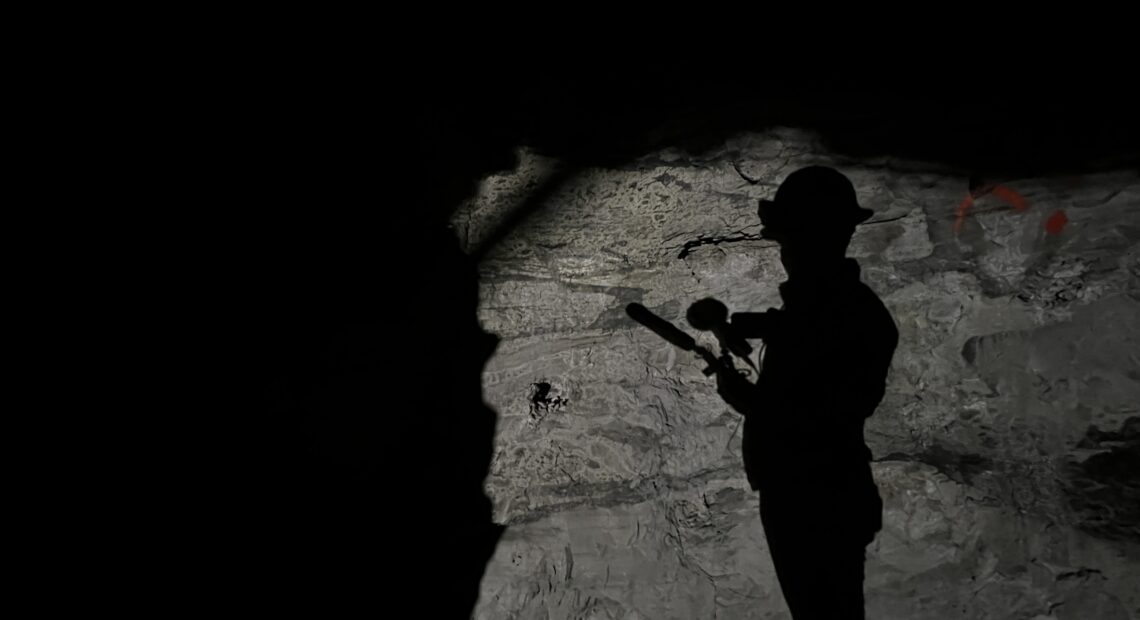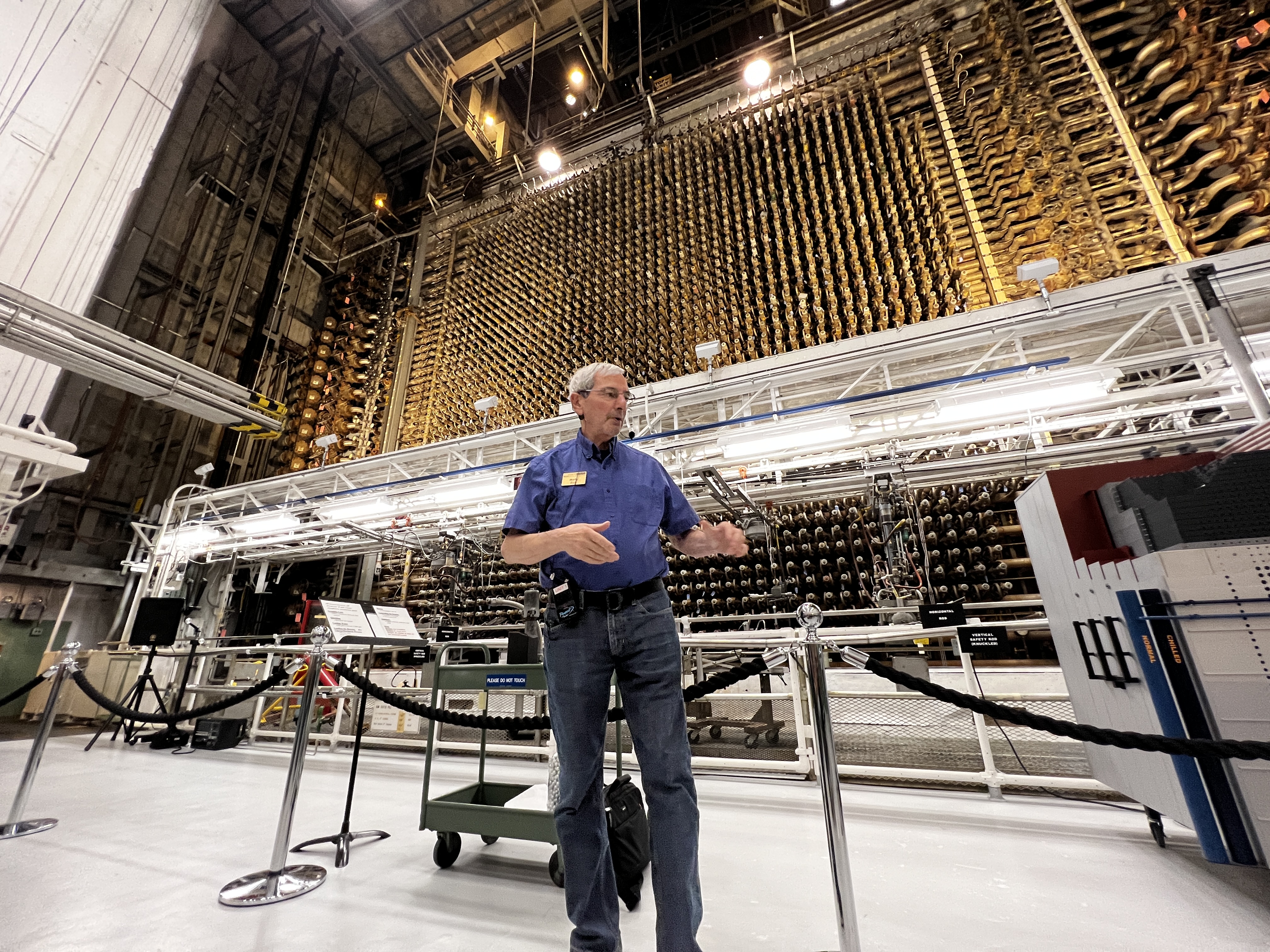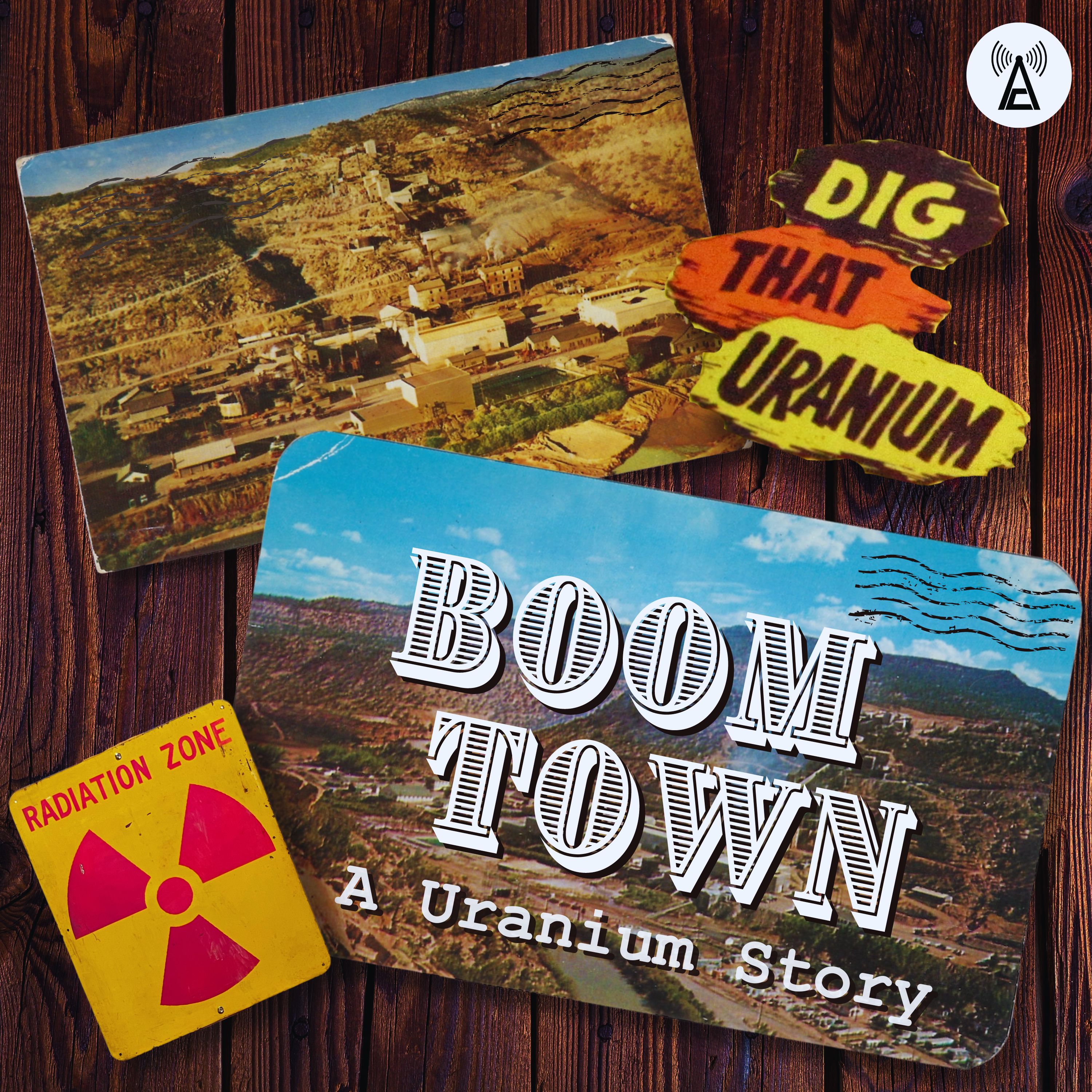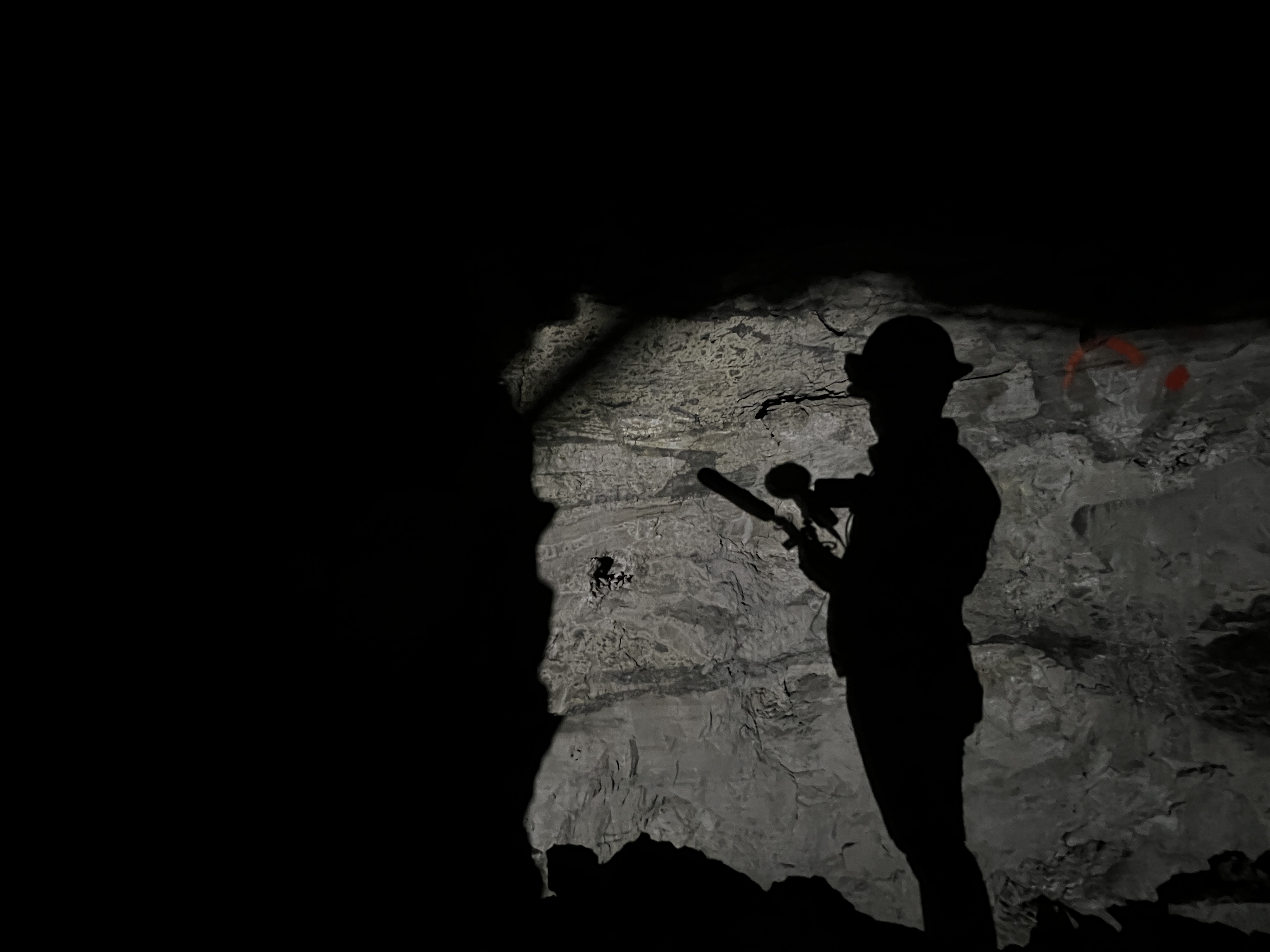
Boom Town: New Northwest-made podcast explores Western uranium mining and Hanford downwinders
Listen
(Runtime :56)
Read
A new Northwest-made podcast explores uranium mining and how yellowcake, or concentrated uranium, winds its way through the West including at the Hanford radioactive cleanup site.
Hanford makes a major appearance in the middle of the new show, called “Boom Town: A Uranium Story.”
“The story behind this is, I thought it was going to be an oral history,” Cowan said. “I found a Facebook group of people who used to live in Uravan, Colorado, a uranium mining town which doesn’t exist anymore. It was torn down in 1986. There are people who still have really hard emotions about this town.”

A Department of Energy docent gives a presentation in front of the reactor core at Hanford’s B Reactor on Sept. 8, 2023.
(Credit: Alec Cowan / Boom Town podcast)
Hanford
The podcast focuses tightly on the Hanford downwinders, a group of people affected by radioactive waste that was knowingly released from the site. The show’s creator, journalist Alec Cowan, said he wanted to understand this divided and complex history about uranium as well as current questions and pressures to build a new nuclear industry.
“People in uranium country really take issue with the fact that nuclear energy is carbon free,” Cowan said.
He said that the mining and milling process at the start of the process does have an environmental impact from radioactive waste.
“There were few environmental protections in the original uranium rush,” Cowan said. “The industry people say that regulations are better now – that it can be safe, and it can be clean.”
Cowan’s podcast skips from Utah to Colorado to Washington state, and it dips into history and into current efforts to clean up the areas.
The podcast’s Episode Four highlights much of Hanford and those exposed to radioactive waste across the country.
Cowan pays a visit to Hanford’s B Reactor, which went critical for the first time 80 years ago this coming September. Marie Cobb is a docent and tour leader for the National Historic Site who was guiding the tour of the B Reactor and its control room.
“The newspaper articles would have been and the newsreels would have been full of the casualties, the American casualties,” she said. “Most people in this room firmly believed the success or failure of this reactor would determine the outcome of the war. And it worked. And I can’t imagine the people in this room, their elation and pride and joy and relief.”

Boom Town is a new podcast that explores uranium mining and its outfall across the West and world.
(Credit: Alec Cowan / Boom Town podcast)
Built with help from family and friends
The podcast is personal for Cowan. He grew up in Grand Junction, Colorado, a one-time uranium mining town, surrounded by more uranium mining.
Cowan also had family and friends help him on his podcast. For example, Cowan’s father, Ron Hayes, plays the guitar-forward instrumental theme for the podcast.
The story also explores present day uranium mines: the rising price of the radioactive substance; the pressures to open new mines; the ecological concerns such as tailings, air pollution and polluted ponds involved with any new or old project.
“When people think about uranium, they think about its end use as an energy source,” said Ann Maest in the podcast. She is an aqueous geochemist researching the water quality effects of hardrock mining, including from uranium.
“It’s just really hard to control when you have that much material that you’re moving, and it’s that close to resources that we care about, like groundwater, surface water, air,” she said.
Cowan said to build this podcast, he traveled from Seattle and stayed with his father in Colorado.
“I just wanted to make a podcast about my hometown,” he said.
Cowan said nuclear energy is being considered an option again because of concerns over climate change. However, the industry still needs uranium, mined out of the earth. The overlooked part, he said, is the small mining towns throughout the West and the waste and scarred landscape.
The podcast Boom Town debuted in July, and a new episode is released every Monday. It’s available wherever you get your podcasts.
If you’re interested in the subject of Hanford, there are other shows, such as: Oregon’s Department of Energy pod called “Grounded” and the watchdog Hanford Challenge’s “Nuclear Waste Scholar Series.”
















